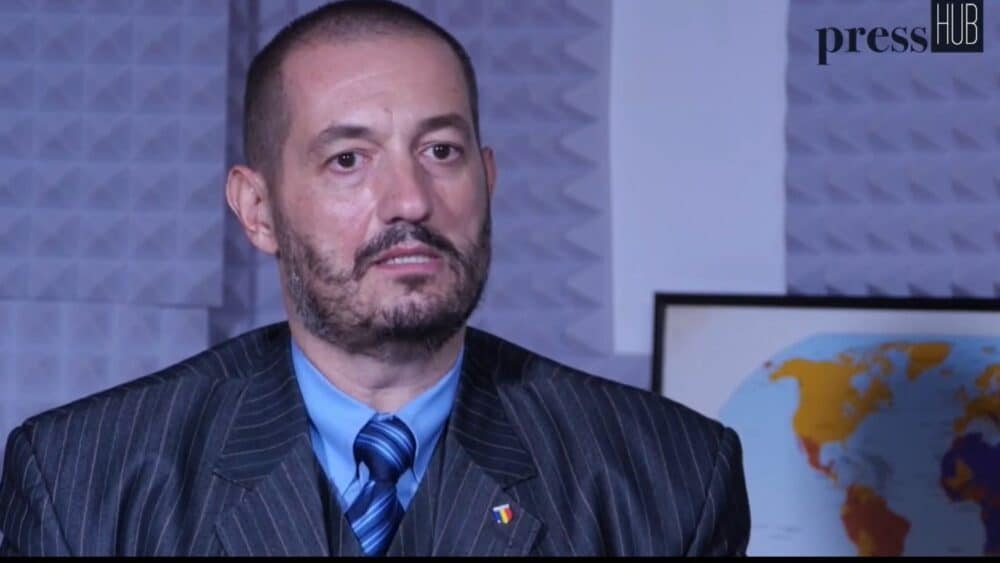The judicial police, which is no longer subordinate to the Prosecutor General, a change contained in the new justice laws that were adopted in the government meeting on Wednesday, has an older substrate. The military prosecutor Bogdan Pîrlog explained to PressHUB that this is an older desire of some interest groups in the Ministry of the Interior, groups that have been trying for years to paralyze investigations in economic files, those with important financial stakes.
„When the Constitution was amended prior to Romania joining the European Union, the D.A. ‘s Office controlled the judicial police. Afterwards, the task was assigned to the Public Ministry.
It is clear that the Ministry of Internal Affairs was under de facto control of influential groups after the Revolution in December 1989. These groups consistently worked to separate the Police from the D.A.’s Office. There has been a legislative back-and-forth for years.
These interest groups have now decided that the Public Ministry and the Ministry of Justice are too weak, so they’ve turned the D.A. ‘s Office and the judicial police into completely separate institutions. The only reason they couldn’t abolish the latter altogether is because it is written into Article 131 of the Constitution.
DIICOT (Directorate for Investigating Organized Crime and Terrorism) is supposed to have more than 200 marshals, although they haven’t seen a significant increase in years. The removal of any mention of the judicial police from the Administration of Justice Law is actually a move towards gaining control over important case files.
“The main concern here is access to significant case files regarding economic issues. Prosecutors cannot handle such complex files on their own due to the sheer amount of documents they would need to go through. Or they could do it once a year, which would be incredibly convenient. The aim of this law is making it impossible for the Public Ministry to build case files,” prosecutor Bogdan Pîrlog told PressHUB.
During the meeting on Wednesday, the government passed Cătălin Predoiu’s justice law proposals. These laws came under fire from associations representing judges as well as civil society.
„There is no longer any legislative basis for appointing and dismissing police officers within the judicial police on account of the Attorney General. The same can be said about deploying marshals within the D.A. ‘s Office on account of the D.A.,” shared anti-corruption expert Laura Ștefan on Facebook.
“At the moment, the judicial police only exist in principle. Details regarding the actual role they’re supposed to fulfill will have to be laid out by new legislation.”, says Laura Ștefan from Expert Forum.
The judicial police, controlled by the MAI (Ministry of Internal Affairs)
President of USR (Save Romania Union) Bucharest Vlad Voiculescu takes a harsh stance on the matter. Calling it “Dictatorship in the justice system,” Voiculescu points out how detrimental this law proposal is. “What happened today, passing these justice laws – not even covertly, like a robbery; no, they did it on the up and up – it must make the likes of Nicolicea and Iordache jealous.
A tough position on the same subject was also taken by Vlad Voiculescu, president of USR Bucharest. Under the title „Dictatorship in justice”, Voiculescu draws attention to this harmful article of law. „Today’s maneuver with the passage of justice laws into the government – not at night like thieves but during the day, like thieves in suits – the likes of Nicolicea and Iordache pale in comparison.
The judicial police will be controlled by the MAI (Ministry of Internal Affairs) and can become a weapon against the opposition. If one of your fellow party members is also a Minister of Internal Affairs, you have a Get Out Of Jail Free card.
Bode will be able to do what Plahotniuc used to do in Moldova. You grill the opposition using the police. That’s how it’s going to go with the judicial police. They’ll abuse the CSM (Superior Council of Magistracy) as much as they want.
The President of the ICCJ (High Court of Cassation and Justice) will be appointed by CSM, which will be controlled by judiciary “reflection centers” and thus a small group of comrades will control everything, from evaluation to promotion, and the Judicial Inspectorate, reprimanding judges and prosecutors they don’t like, or taking them out of the picture altogether.
“If the Attorney General or the President of the ICCJ don’t like the cut of your jib, you’re on disciplinary trial. Camelia Bogdan or Cristi Dănileț were just the tip of the iceberg.”, says Vlad Voiculescu.
Also read: America’s Legal Basis for Intervening in Ukraine
Laws criticized and passed by Ciucă
Judges’ representative associations were also very critical of these laws. On August 11, three judge also took extremely critical positions towards these draft laws promoted by the Ministry of Justice. On August 11, three magistrates’ associations sent an open letter to the European Commission asking it to get involved in order to salvage what it can in terms of judiciary independence. The letter also revealed that Romania didn’t follow any of the European Commission’s key recommendations regarding justice legislation.
The three associations asked Brussels „to restore rule of law in Romania’’ by any means necessary.
If the European Commission failed to do so, it would mean that ‘’justice has been obliterated, and the EU treaties have been totally and irredeemably compromised,’’ claim the three judges’ associations.
The letter was signed by the Judges’ Forum Association, the Justice Initiative, and the Movement to Protect the Status of Judges. It was addressed to the President of the European Commission, Ursula von der Leyen, President of the European Commission, Vere Juorova, the Vice-President of the Commission, and DIdier Reynders, the European Justice Commissioner.
Follow PressHUB on Google News !




